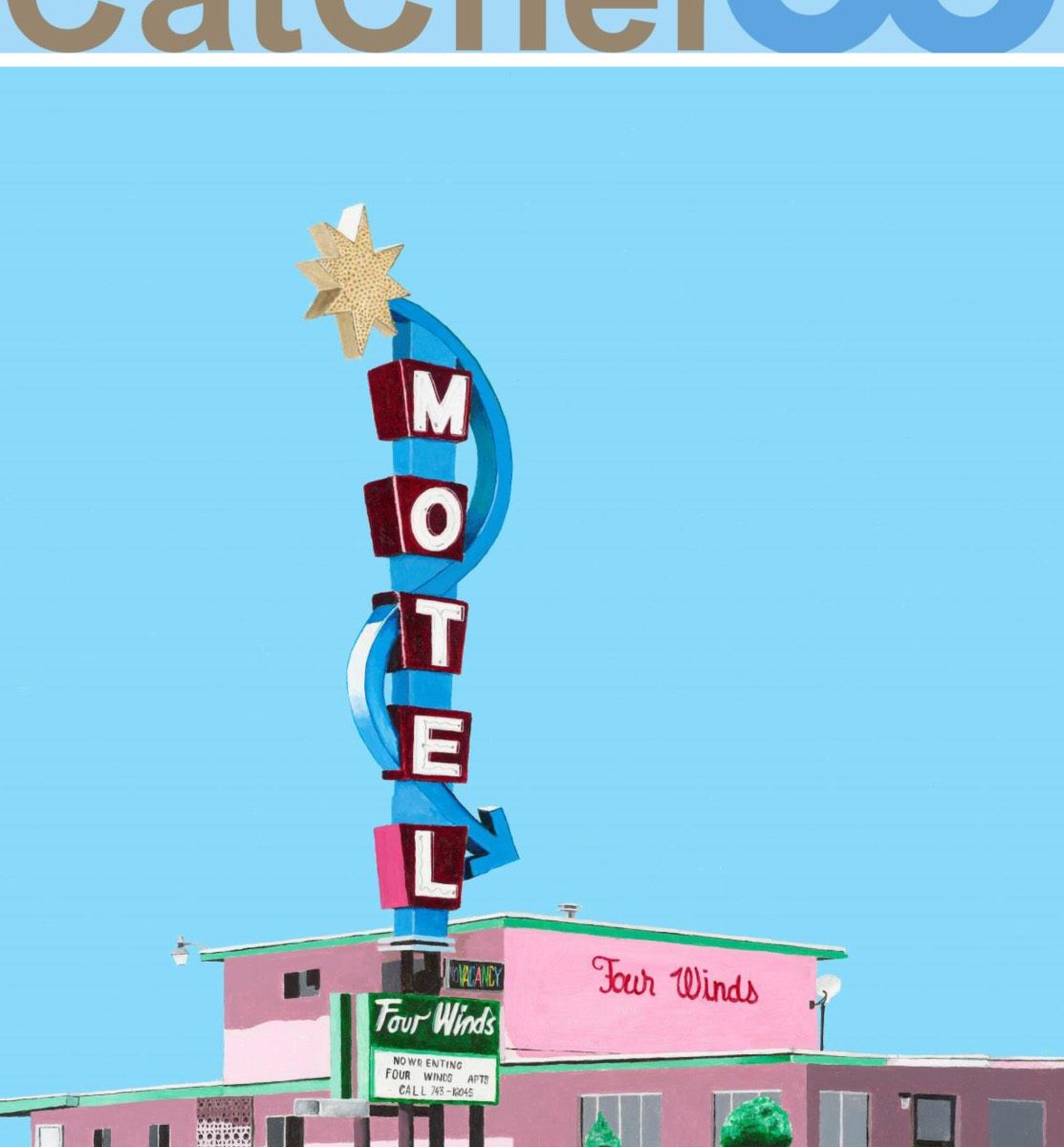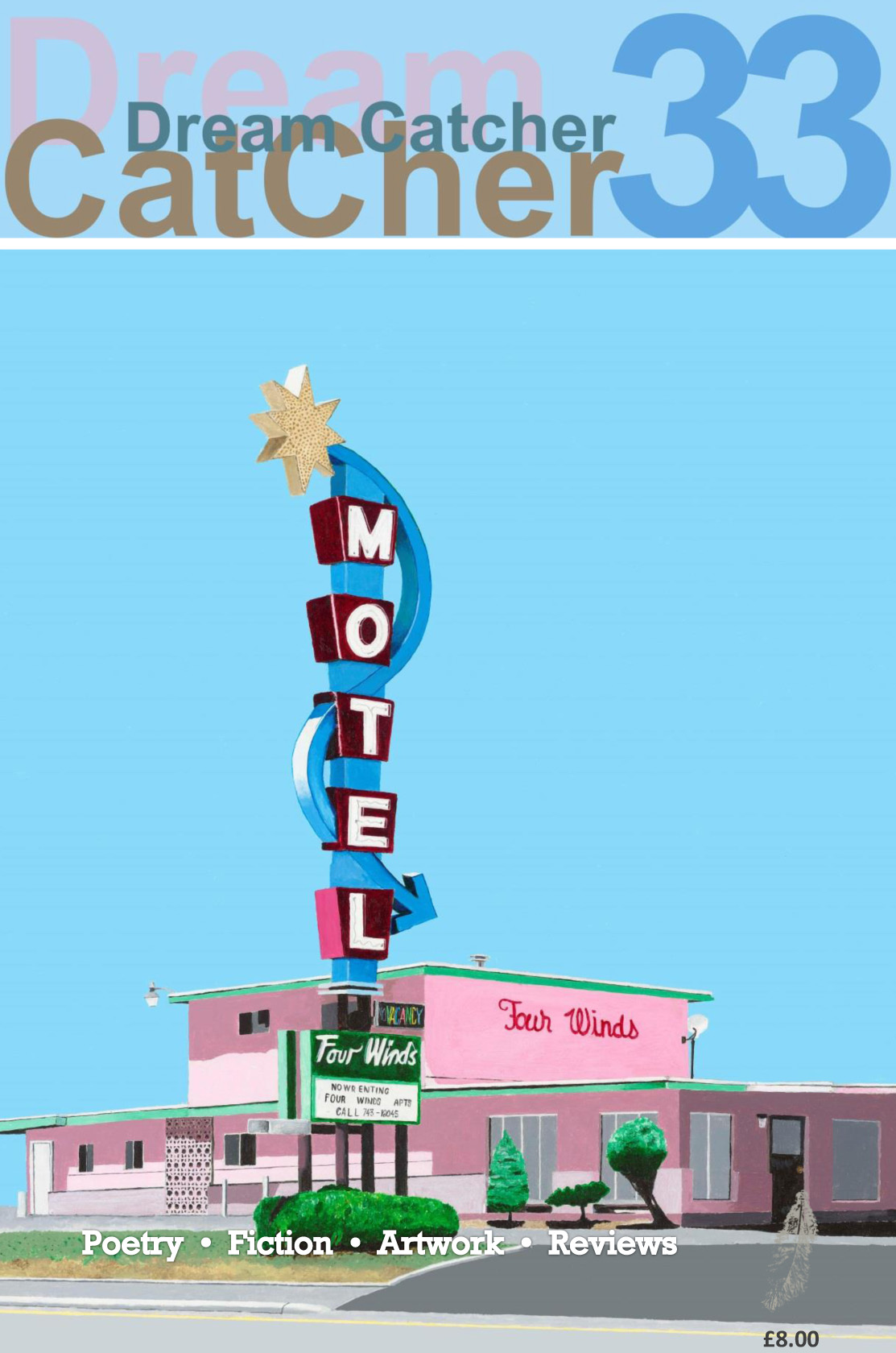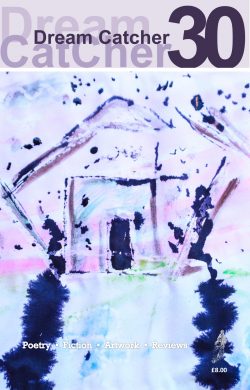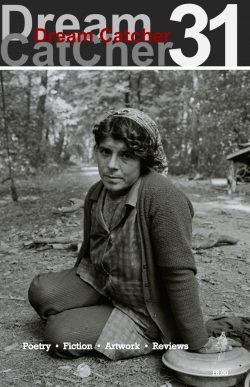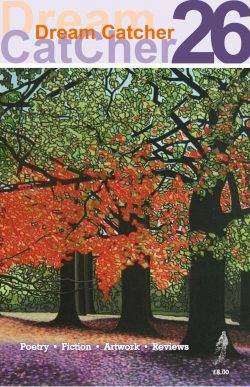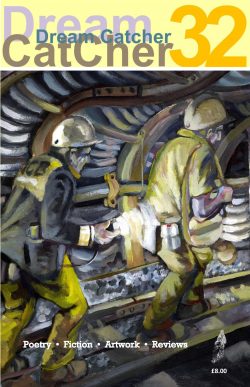| Cinderella | Give me that midnight in between, she called The prince misplaced all of her moments, in sudden gravity, Oh her soul was the thing that buries you, The story of Cinderella has taken on a grim new reality, And prince after prince after prince after prince, Oda Dellagi |
|---|---|
| The Handmaids at the Execution of the Queen | Sliced – cleanly – off! The handmaids pick up after the royal jade as always; Oh, feel it: her fleshy cheek still moves human, Ellen Plant |
| Aftershave | Men, when freshly shaved and smooth, the beardless have another chance – Some go electric – Philips, Braun. Tom Vaughan |
| Broken English | Sometimes the English is broken Sometimes the English is broken Sometimes the English is broken Sometimes the English is broken Sometimes the English is broken It may, at times, be necessary Juliana Mensah |
Issue 33
£4.00
In Dream Catcher 33 we range far and wide. To the US in Summer, its baking highways with their drive-in diners and lonely motels, its small-town main streets and car lots, all evoked on the cover and the inside series of building portraits by featured artist Horace Panter. His work is described by Art Editor Greg McGee as a “pop art homage to what is a Kerouacian yearning to travel to altered states, to adventure, to expand horizons: to remaster, in a sense, the myth of The American Dream.” And we travel too, in poetry and prose, from the intensely local, Colin Speakman’s stile not taken, to Claire Booker’s far away (or are they?) desert islands. Diana Powell’s story of 17th century domestic intrigue is close kin to Merryn William’s contemporary take on neighbourhood spying. Roger Harvey revisits WW1 air ace Manfred von Richthofen and David Susswein brings us face to face with massacre in Africa. A disaster in Bradford exactly 100 years ago, and a wreck on the Yorkshire Coast in ’76. There’s a new take on old stories, Oda Dellagi on Cinderella, Carol Coiffait ‘s Diana, and a back to front tale about his famous namesake from Mark Carew.
In this issue we review books by Thelma Laycock, Graham High, Tanya Nightingale, Jackie Biggs, Bill Dodd, Mark Mansfield, and T.F. Griffin.

